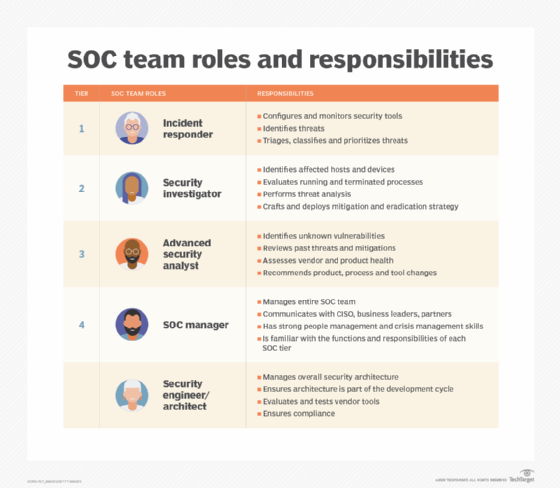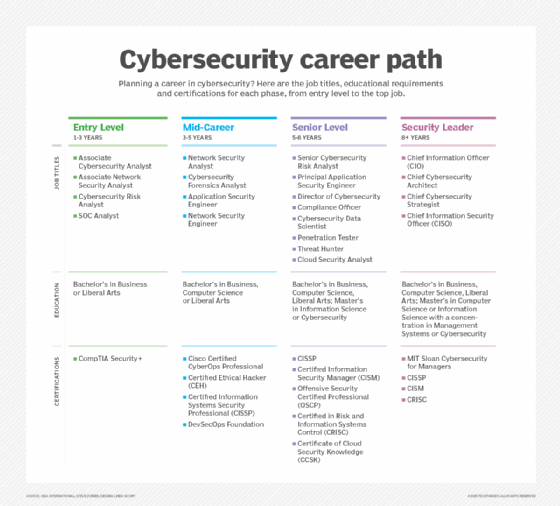Enterprise organizations will at all times want cybersecurity professionals. According to ISC2’s Cybersecurity Talent Survey 2023, the variety of cybersecurity jobs will attain an all-time excessive in 2023 and is predicted to proceed to develop within the coming years regardless of advances in AI and automation.
This continued progress has many job seekers turning to cybersecurity as a long-term profession possibility, making cybersecurity analyst positions probably the most in style entry factors into the sphere.
While the function and obligations could range barely from group to group, generally inflicting confusion amongst job seekers, the function of a cybersecurity analyst usually requires distinctive expertise and delivers totally different organizational outcomes in comparison with different roles akin to a cybersecurity engineer or info safety analyst.
Let’s discover the final understanding of what a cybersecurity analyst does and the way it differs from different security-centric professions.
What does a Cybersecurity Analyst do?
As the identify suggests, a cybersecurity analyst primarily focuses on analyzing knowledge from numerous safety instruments to establish suspicious exercise and potential threats inside programs and networks. The final objective of a safety analyst is to forestall safety breaches that would hurt a enterprise.
Analysts usually work alongside different cybersecurity professionals in a safety operations heart, and plenty of SOCs have cybersecurity analysts with titles starting from entry-level roles to senior-level roles.

Cybersecurity analysts are key gamers in a SOC. Many SOCs have analysts with totally different job titles, with Tier 1 analysts dealing with probably the most fundamental, entry-level duties.
When cybersecurity analysts detect suspicious exercise, they provoke an incident response course of, which incorporates implementing any obligatory mitigating measures, documenting particulars of confirmed safety incidents, and any tried or profitable knowledge breaches.
In addition to analyzing and remediating threats, cybersecurity analysts usually deal with the next duties:
Develops organization-wide safety technique; Recommends new safety insurance policies; Implements safety measures; Performs vulnerability assessments and compliance audits; Researches, identifies, and applies safety patches; Provides safety schooling for finish customers; Generates and communicates safety studies to stakeholders.
Day-to-day obligations range relying on the cybersecurity analyst’s title, however senior analysts are usually concerned in higher-level technique.
Cybersecurity analysts primarily concentrate on using safety instruments for monitoring, detection, and response operations.
What is the distinction between a cybersecurity analyst and a cybersecurity engineer?
Although the obligations of a cybersecurity analyst and a cybersecurity engineer could overlap, there are distinct variations between their job descriptions.
Cybersecurity analysts primarily concentrate on using safety instruments for monitoring, detection, and response operations.
Security engineers, then again, concentrate on the design, deployment, and ongoing operation of safety instruments that shield networks and supply visibility and detection of cyber threats.
What is the distinction between a Cybersecurity Analyst and an Information Security Analyst?
In some organizations, cybersecurity analysts and knowledge safety analysts carry out the identical capabilities and the titles are interchangeable; nonetheless, in different organizations there are variations.
Information safety analysts usually concentrate on info safety insurance policies, regulatory compliance, danger administration, and the bodily safety of organizational amenities.
On the opposite hand, the function of a cybersecurity analyst is narrower in scope and focuses on defending the digital programs, providers, and knowledge on an organization community.

While some organizations require a bachelor’s diploma in pc science for entry-level cybersecurity analysts, others are open to candidates with related expertise and expertise – in reality, an ISC2 workforce survey discovered that 70% of safety professionals favor entry-level expertise over a level.
How to Become a Cybersecurity Analyst
Becoming an efficient safety analyst just isn’t a straightforward process and requires a robust understanding of:
How pc programs and networks work. How to safe these programs and networks. How to supply visibility into assaults in opposition to customers, programs, and knowledge.
Cybersecurity Analyst Hard Skills
Cybersecurity analysts additionally want a spread of specialised expertise. Key technical expertise embrace:
Proficiency with OS and OS safety. Strong understanding of community protocols. Ability to implement safety insurance policies. Strong understanding of complementary community safety instruments akin to firewalls, intrusion detection and prevention programs, SIEM programs, monitoring and risk detection instruments. Ability to interpret analytical output from system and community safety instruments. Proficiency in using vulnerability evaluation and penetration testing instruments. Ability to carry out risk remediation processes utilizing handbook and automatic strategies.
Cybersecurity Analyst Soft Skills
Soft expertise required for a cybersecurity analyst function embrace:
Problem-solving and demanding considering expertise. Attention to element. Good communication expertise and the power to work successfully with technical and non-technical staff members.
Job Outlook for Cyber Security Analysts
While it is essential to notice that cybersecurity just isn’t proof against the consequences of macroeconomic downturns, the outlook for safety analysts is the perfect it is ever been, with continued job progress, comparatively excessive salaries, and the potential for quite a lot of profession paths. Additionally, the ISC2 Workforce Survey discovered that 70% of cybersecurity practitioners are “very happy” or “considerably happy” with their jobs.
That mentioned, the broadly reported enhance in demand signifies that many professionals in each associated and unrelated fields are probably contemplating or pursuing cybersecurity-related careers.
Given the rising curiosity in cybersecurity analyst roles, it’s important that job seekers stage up their arduous and gentle expertise to distinguish themselves from different job seekers. This contains expertise akin to:
Workers who efficiently enter the cybersecurity discipline will discover ample alternatives for development and quite a lot of doable profession paths. For instance, many expertise are transferable between roles akin to cybersecurity analyst, cybersecurity engineer, and knowledge safety analyst. Therefore, transferring from one function to a different is comparatively simple, opening up additional skilled alternatives at numerous ranges of seniority.
Andrew Froehlich is the founding father of enterprise IT analysis and evaluation agency InfraMomentum and president of IT consulting agency West Gate Networks, and has greater than 20 years of enterprise IT expertise.

